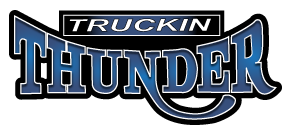Truck owners often find themselves in a situation that makes them develop a need for towing. Thus, it is recommended that prior to making a purchase, truck buyers should consider factors such as hauling and towing capacity. Furthermore, the gross weight of the trailer, tongue weight among other specifications affects the type of hitch to be installed.
What Factors Affect the Towing Capacity of a Truck?
Various factors affect a truck’s towing capacity. For instance, the gross weight of the truck when fully loaded. This entails the total number of occupants weighing 150 Ibs each and the fuel tank full of gasoline.
Secondly, all trucks are engineered with a suspension that can hold particular weight in the rear. This weight is normally called the hauling capacity and translates to the balanced load. Notably, the tongue weight is usually lower than the balanced weight since the weight is positioned at the rear end of the vehicle and highly depends on the type of hitch attached. If a truck tows a trailer within the towing capacity, there is no problem since it is well-balanced.
An average light-duty truck can haul from 500 to 700 Ibs while the heavy-duty ones can carry weights of up to 1300 Ibs. The overall tongue weight is approximately 10 percent of the total conventional capacity.
Additionally, the towing capacity is impacted by the type of truck tires. For instance, the stock tires are well-engineered to tow and handle tongue weights. Any excess weight or installation of inferior tires on such a truck can lead to a disastrous failure of tires while towing.
What Are the Common Hitch Classes and Types?
Truck hitches come in a variety of classes starting from Class I to V. A more important rule to observe is that hitch installed should match the towing capacity of the truck. Notably, Class I hitch and Class II hitches are installed on light-duty vehicles such as passenger cars, and are commonly used to tow cargo boxes, bike racks among other light loads. Also, they can be applied on trucks that are used to pull light trailers such as trailers for towing small boats, AVT or U-Haul.
Class III hitch is designed to be used mostly in the truck application that encompasses light trucks. These hitches can be used to tow 8000 Ibs and can accommodate tongue weights that measure 800 Ibs. These hitches can be used for conventional towing functions. Class IV and V are heavy duty commercial.
In a bid to raise the towing capacity, you may add a gooseneck hitch. This may increase the towing capacity by fifty percent. The capacity of the hitch increases with the class of the hitch increases form Class I to Class V with Class V being the heaviest duty hitch. Even heavier loads, like horses, vehicles and equipment, many use gooseneck hitches. The RV industry primarily uses 5th wheel hitches.
While towing, the most important factor to consider is the safety of passengers and the truck. This can be attained if drivers stick to stipulated towing capacity limits. Thus we help drivers determine the most suitable hitches for their trailers and trucks and get them fixed appropriately.
Call us for quality hitches and other accessories that match your truck. Truckin Thunder is open for all your hitch and other truck accessories.

